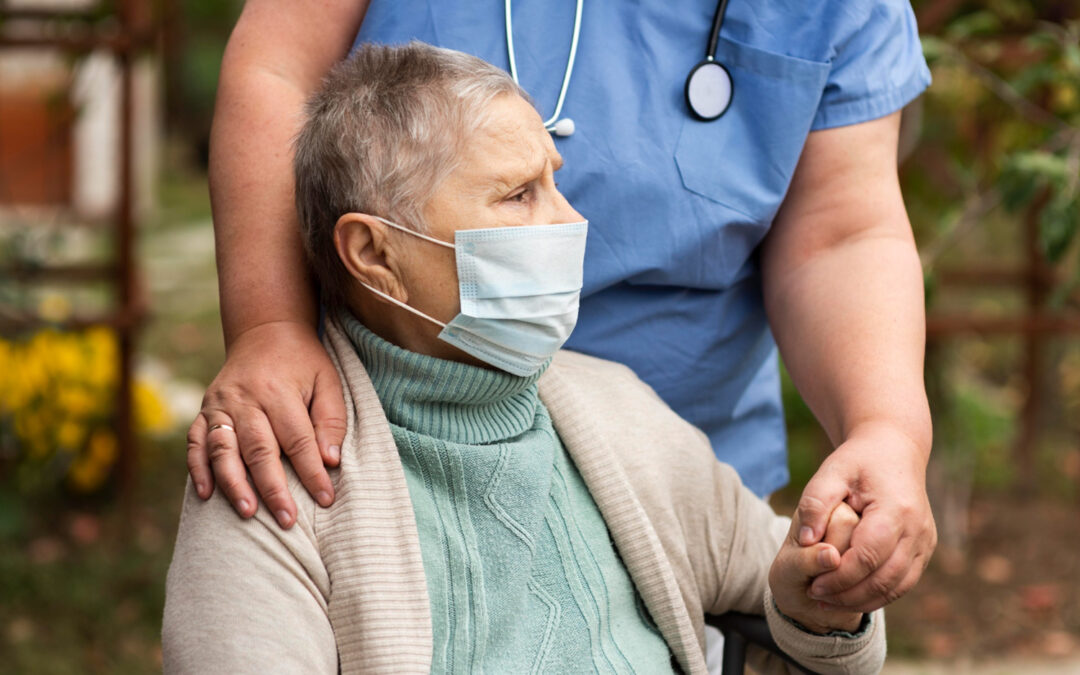Aging at home presents unique emotional challenges that can affect a senior’s well-being. Understanding the challenges and how to address them is critical for both seniors and their families. This guide focuses on navigating the emotional challenges of aging at home, such as dealing with loneliness, managing anxiety and depression, promoting positive mental health practices, and establishing a support network. Here’s how families can support their loved ones’ emotional health and quality of life.
Coping with Loneliness and Isolation
Loneliness and isolation are common among seniors who live at home. Coping with loneliness is critical for seniors’ mental and emotional well-being. Seniors frequently face isolation as a result of physical limitations or the death of friends and family. This isolation can make them sad and have a negative impact on their overall well-being.
To combat loneliness, it is critical to promote regular social interactions. Participating in senior support groups and community activities can help you connect. Family members should actively engage their loved ones in social gatherings or schedule regular visits. Building social connections with seniors reduces loneliness and fosters a sense of belonging.
Managing Anxiety and Depression
Managing anxiety in the elderly is an important part of keeping them mentally healthy. Anxiety and depression in seniors can be caused by a variety of factors, such as health problems, loss of independence, or the death of loved ones.
Home care for anxiety and depression entails providing emotional support as well as professional assistance when required. Families should be aware of signs of anxiety and depression and seek appropriate treatment. Encouraging participation in activities and hobbies can help to alleviate symptoms and improve mood.
Senior emotional support programs may be beneficial. These programs provide counseling and therapy to help seniors manage their mental health. Regular check-ins and open communication with a trusted caregiver or mental health professional can have a significant impact.
Encouraging Positive Mental Health Practices
Positive mental health practices for seniors are critical to overall well-being. Encouraging seniors to adopt mental health-promoting habits can improve their overall quality of life.
Simple practices like regular exercise, a balanced diet, and participation in meaningful activities can have a significant impact. Setting daily routines and goals that give a sense of accomplishment are examples of senior mental health strategies. Cognitive activities such as puzzles and reading can also increase mental engagement.
Promoting relaxation and stress-relief techniques is another important practice. Meditation, deep breathing exercises, and gentle yoga can all help you manage stress and achieve emotional stability.
Building a Support Network for Emotional Well-being
Creating a strong support network for older adults is critical to their emotional well-being. A strong support network consists of family, friends, caregivers, and community resources.
Connecting seniors with senior support groups can help them feel less isolated and more emotionally supported. These groups provide a forum for seniors to share their experiences and seek comfort from others who understand their difficulties. Involving seniors in community activities or volunteer opportunities can also help them expand their social network and feel more purposeful.
Families should also look into local resources for elderly care in Torrance. Professional caregivers can provide companionship and assistance with daily tasks, thereby improving the overall quality of life.
If you need professional help navigating the emotional challenges of aging at home, Angeles Senior Care is ready to help. Our senior home care services are intended to benefit both the elderly and their families. We are located at Pyramid Office Park, 22939 Hawthorne Blvd., Suite 108, Torrance, CA 90505, and offer personalized care plans to meet emotional and physical needs.

